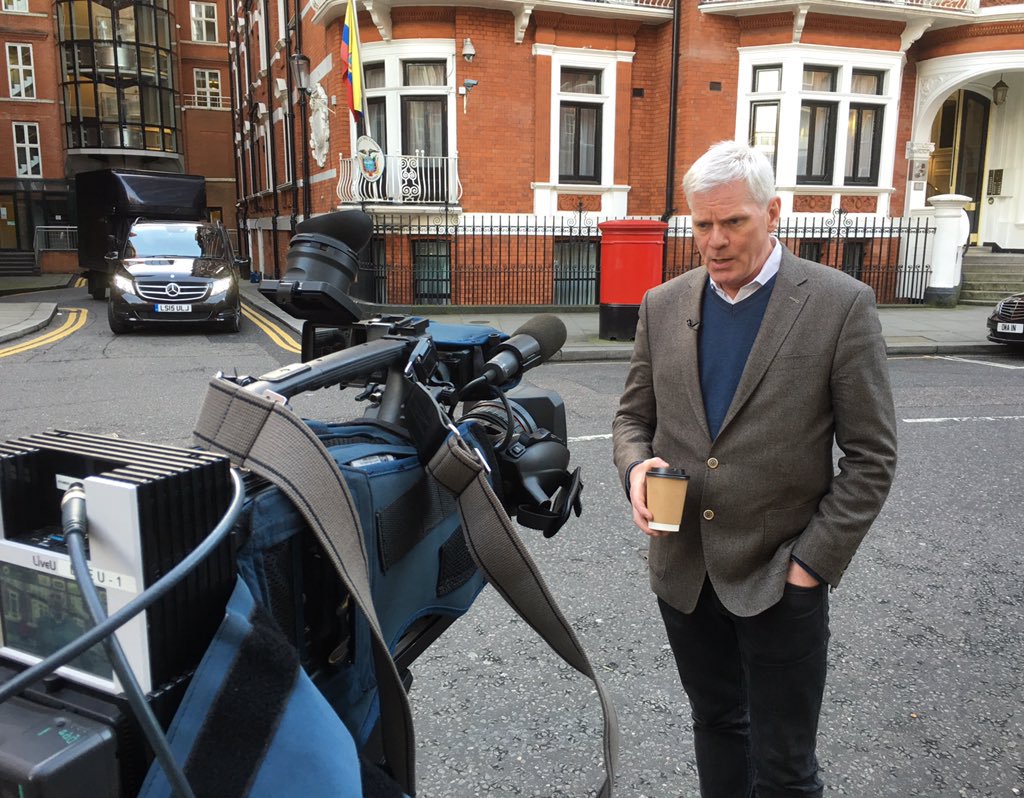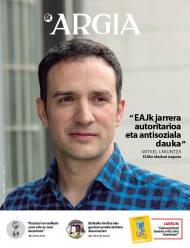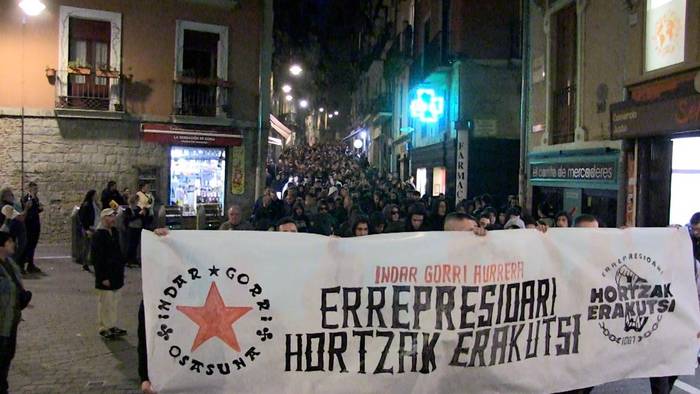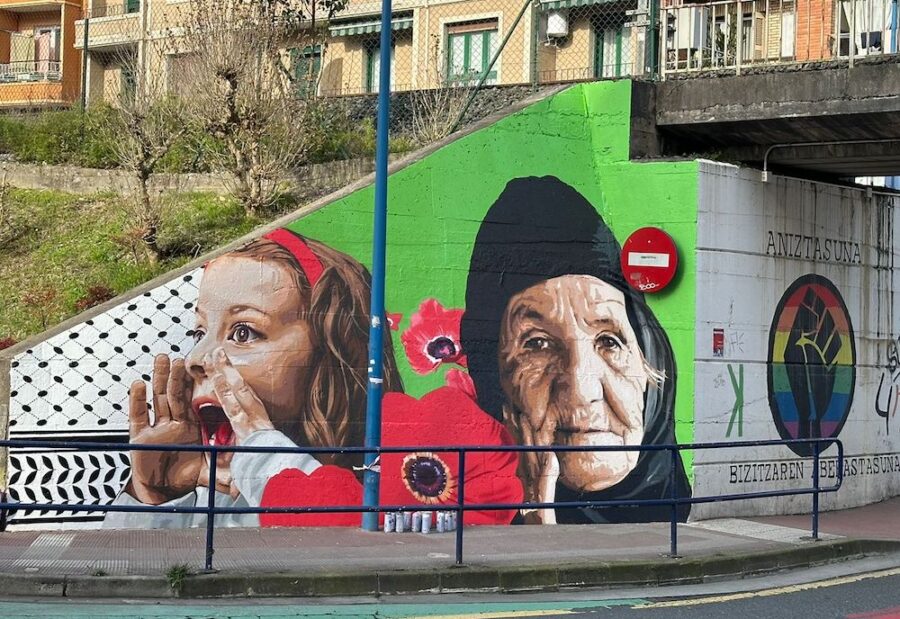Kristinn Hrafnsson, Director of Wikileaks: "You're a radical journalist or you're not a journalist."
- The new director of Wikileaks is Icelandic Kristinn Hrafnsson. Trained in investigative journalism, he is convinced that a new Neo-McCarhtysmo has spread the war against journalism. The alleged decision of the authorities to extradite Assange to the USA The case against Wikileaks, now in secret, the incarceration of Chelsea Manning... The director of Wikileaks has not been missing since September.

Although Ekua towers, Julian Assange, attended London police on 11 April, Wikileaks continues to work as Assange has been isolated all the time. Directed by an Icelandic journalist, Kristinn Hrafnsson, Andie Fontaine interview The Reykjavi for Grapevine [Reykjavik Confidential] magazine.
Man without beard, no mouth: “You’re not a radical journalist, you’re not a journalist, you’re part of the problem: public relations. By this I do not mean that journalists are always paid by the authorities, sometimes they want to avoid conflicts or not receive criticism. Confronting power can be difficult and there are people who don’t want problems, simply.”
Kristinn Hrafnsson (1962) started working as a journalist in the 1980s on the Icelandic television channel Stöd 2 to investigate corruption cases on the Kompas program team. In 1991 it was used in the Icelandic Public Radio Television (RUV).
“I’ve always thought,” says Hrafnsson, that journalism has to be ethical but hard. The ideals of our youth time would surely be considered radical today. So there was no talk about journalism having to be, in a way, neutral. As a journalist since I was twenty years old, I have been attacked everywhere because I considered myself partial. But if politicians from all parties stick to you, it's surely a sign that you do it right. We are isolated from those criticisms. It has to commit itself to an idealistic approach to deserve the honor of this trade.”
In 2008, Iceland suffered the greatest economic failure in any country’s history, as the country’s three major banks collapsed and the country’s private banks, such as public finances, were indebted to large foreign banks. Hrafnsson always mentions that the committee of inquiry that was set up to investigate the disaster denounced politicians and businessmen, as well as journalists, for not having alerted the citizens in time.
The media failed the public: “All financial issues are left to specialist journalists in this field, who often agree with bankers and elite experts. We have failed. We have ignored the warning signs, as journalists we had something to analyze about our work.”
In 2009 he was handed the documents of a failed case of corruption between the Kaupthing Bank and the British businessman Robert Tchenguiz, money in tax havens and history. Hrafnsson ventilated them at a UVR round table and Tchenguiz sued them for violating banking secrecy. The public broadcaster left Hrafnsson on the street, although later the accusation against him was nothing, and he started again as in his youth.
Later, however, he found more information on the Kaupting-Tchenguiz case confirmed in the Wikileaks leaks leaks. And Wikileaks revived his spirit as a journalist, both because of its transparency and because of the difficulty of keeping quiet using the laws. He was invited to Julian Assange to Iceland, became a friend and got involved in the project.
EPIDEMIC CALLED ‘NEO-Mcc ARTHySMOA’
“Wikileaks has achieved two things mainly. To begin with, it has demonstrated the strength of these kinds of massive leaks, signalling many characteristics of corruption and war crimes that can change things. Secondly, we have shared the resources that big media have, we have demanded people to work together, even if it is often difficult. (...) Opened the way for more alerts [whistleblower]. Edward Snowden has confessed that without those 2010 leaks he would not get theirs.”
One of the main complaints against Wikileaks is that it extends documents without passing through the filter, endangering the innocent lives of the je-s. “It’s been amazing – Hrafnsson says – to watch the U.S. military chief almost crying on TV, saying that Wikileaks can have their hands blown up with their leaks. However, this has not happened. Information is never neutral, it can have some negative effects, any journalist knows. But to this day this has not happened [bloodshed of innocent people] due to the largest filtration of internal secrets of the most powerful military machine in the world.”
After all, the ethics of Wikileaks seems quite simple: everything can be in the public’s knowledge, except sensitive personal information, transparency and exceptions to regulation and transparency must be rare and justified. “All the laws on information rights were based on that, but it seems that today, for one reason or another, people don’t understand it.”
Kristinn Hrafnsson, like many other journalists, believes that an escalating war on journalism is already underway. “A silent epidemic has spread, which I call neo-McCarthysm. This war on journalism is likely to harden. I do not believe that journalists in the mainstream media are aware of the danger we are facing, that they realise that it is time to awaken and defend Julian Assange, Wikileaks and Chelsea Manning. The situation will surely get worse, I try to be optimistic. It took a few years for the mainstream media to recognize that the authorities had lied to us about the reasons for the invasion of Iraq.”
John Pilger is another of the critical jurnalists who works and disseminates rigorous information beyond the imprint of mainstream journalism, and whom Hrafnsson loves to mention. Pilger points out that most of the stories about authority disorders – the consequences of the Hiroshima bombing, the Vientam My Laiko massacre, the links between the CIA and drug trafficking, etc. – have come to light with smaller and independent means, demonstrating in some way that there is a ray of light at the end of the tunnel.
Assange no longer pursues Sweden but yes United States, Chelsea Manning has been arrested again... Tough times for the Wi-Kileaks? “I’m a few years old and I’ve seen the pendulum move forward and backwards. I have no doubt that history will take on the enormous importance it has for Wikileaks journalism. I don’t know if by then Julian or I will have left, but Wikileaks will be recognized.”

Steilas considers out of place the effort of the Rectorate of the UPV/EHU to prevent the participation of a person through a communication at the congress on Sovereignty(s) held recently in our university. We do not understand the attempt to obstruct the academic activity of a... [+]





















